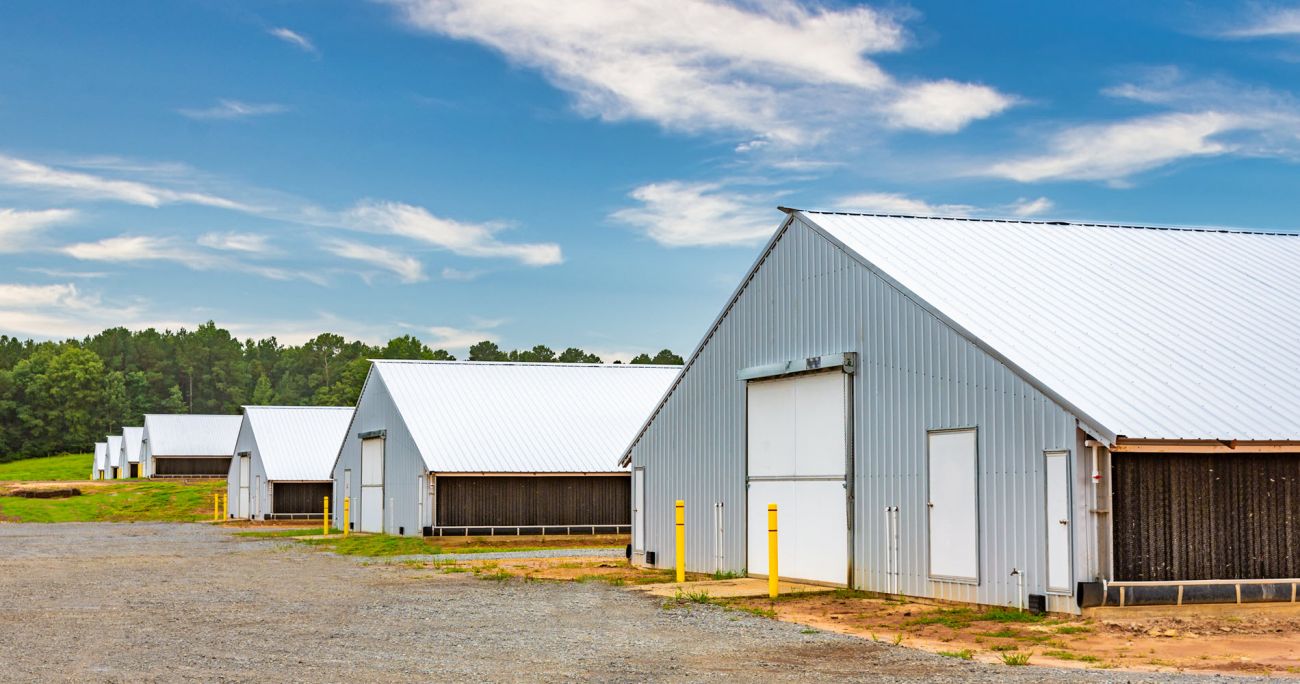Is Poultry Farming for You?

First Financial Bank
Are you interested in starting your own commercial poultry farm? This can be a profitable business venture for you, but like anything, there are “pros” and “cons”.
Before committing, be sure you’re putting your eggs in the right basket by entering the business informed and well prepared. From acquiring basic equipment to properly feeding the birds and partnering with an integrator, there are many steps you need to consider in order to succeed.
Below we’ve touched on some of the positive and more challenging aspects you should keep in mind when deciding whether or not the poultry business is right for you.
Pro — The poultry market is thriving
Chickens are the second most frequently bought fresh meat category, and turkey products are expected to become more popular as the demand for low-calorie foods and healthy meat alternatives increases. The combined value of production from various poultry products in 2020 was $35.5 billion.
Industry experts expect poultry products to gain eminence in the American market by 2028, with the popularity of savory snacks growing across the globe. The low production cost of poultry, combined with the public’s insatiable demand, means that now is a better time than ever to join a booming market that’s only destined to continue expanding.
Con — There can be a lot of red tape associated with startup
Before you get too involved with poultry farm planning, make sure you’re aware of the slew of state and federal government laws and regulations that accompany the industry. For example, if you work with a processor for your poultry farm (the majority of jurisdictions ask that you do so unless you’re already licensed), then you must offer proof that your farm meets all of the necessary zoning and licensing regulations for your local area.
You’ll have to consider standards for emissions, air quality, ventilation requirements, animal nutrition, and waste management – to name just a few. If you don’t provide evidence that you’re in compliance with these demands, or if you fail an inspection, then you can lose revenue as quickly as you created it by paying for fines and upgrades.

If you’re hoping to hit the ground running with quick turning stock, then you won’t have to wait as long for results with poultry. For example, broiler chickens are specially bred for fast growth and slaughtered when they reach a predetermined weight, which usually takes on average between 12 and 20 weeks vs 12-22 months for beef cattle. If you’re more interested in pursuing the layer chicken route, then you can count on hens beginning to lay eggs daily at 18-22 weeks in proper conditions (i.e., with sufficient lighting).
Con — People and flock are both at risk from disease
As is the case when working with any live animal, poultry farming runs the risk of generating foodborne illnesses and other diseases, including Campylobacter and Salmonella. These bacteria account for more than 90 percent of all reported cases of bacteria-related food poisoning worldwide, and the vast majority of these cases are related to poultry products.
Also, flocks are at risk for diseases too. Just a few years ago, Avian Influenza caused the deaths of 50 million chickens and turkeys. Some died of the disease, while other flocks had to be destroyed to prevent the spread. The cost to your bottom line can be devastating. It pays to follow the safety guidelines.
Pro — You don’t need as much space per animal
Many sectors of the farming industry can require extensive space — think acres and acres for planting crops or grazing cattle — but poultry farming is relatively more compact. While barn designs for beef can require approximately 20 to 30 square feet, a general rule of thumb for chickens is 2-3 sq ft per bird.
Con — You need a sizable investment to start a commercial poultry farm
The startup price of your poultry farm will vary depending on a variety of factors, but there are some general cost considerations you should be aware of from the get go. For example, estimates for building a single chicken grow-out house ranges from $200,000 to $280,000, and you may require multiple chicken houses to be workable.
As you begin your research, look into local utility costs, states’ agricultural guidelines, and weather information that will directly impact your business’s operational costs to get a sense of what your initial financial commitment will require. After factoring in the cost of facilities, employees, chicks, and licenses, you’ll have a better idea of how much you’ll need to finance.
Pro and Con — Working with an established integrator
Getting into the business on your own has a lot of risks. One of the ways your risk is mitigated is by leveraging the knowledge, experience and resources of an integrator. These are the big names in poultry that you and consumers know well: Tyson, Perdue … and more. With that exclusive contract in place, you won’t have to worry about who is buying your products or marketing to consumers. That is your partner’s responsibility.
But there are trade-offs: each integrator has specific requirements about the flocks and how they are grown, so you will need to comply with the terms of the agreement and plan accordingly. You’ll need to work hard to minimize costs while optimizing your yield to compete with the other farmers who are partnered with that integrator. Each one has its own unique quirks, so be sure you investigate your options thoroughly before committing.
So, should you start a commercial poultry farm?
The pros and cons of commercial poultry farming, like any other business venture, must balance the work, time, and cost requirements with the potential for profit. For some individuals and families, the risk is worth the reward, while for others, the effort it takes is better spent raising other crops or stock.
From a business standpoint, the commercial poultry industry is only primed to continue its rapid growth, and the opportunities to get involved are boundless. With the right business plan — including financing, resources, and partnering/networking — you could find yourself in a position to find great success in this agriculture sector.

What Kinds of Software Do Farmers Need?
The more you can reduce the guesswork, the more profitable your farm may be. That’s where agricultural software comes in.

How to Get Your Loan Decision Faster
Have you ever applied for a loan and only have it sit on your lender’s desk for days without an answer?

Well Prepared Financials Reflect Good Management Skills
Good production numbers are great, but management skills are a must in today’s environment of tight margins and the endless pressures from third parties.

